Top traffic cop reveals the worst driver excuses - and the myth of ‘revenue raising’
A leading Aussie traffic cop has lifted the lid on the worst driver behaviours and excuses.
Senior Sergeant Bradyn Murphy has seen it all.
He’s been riding police motorbikes since 1987. Since 2010 he had been Officer In Charge of the Gold Coast Road Policing Unit.
He’s heard the excuses, the pleas for mercy, the angry rants from errant drivers.
He sees what people say on social media. The comments about “revenue raising”. About “targeting” motorcyclists. About “hitting targets”. Asking why police only appear to do speed checks and supposedly “do nothing” about other driving behaviours.
He’s also had to knock on the doors of many strangers and be the one that tells them their loved one isn’t ever coming home.
The reality of the job being done by Snr Sgt Murphy and his officers is very different to how many people imagine.
This is what they are really doing, the excuses they hear most often, and the behaviours that concern them most.
Most common excuses for speeding? Have your say below >>>
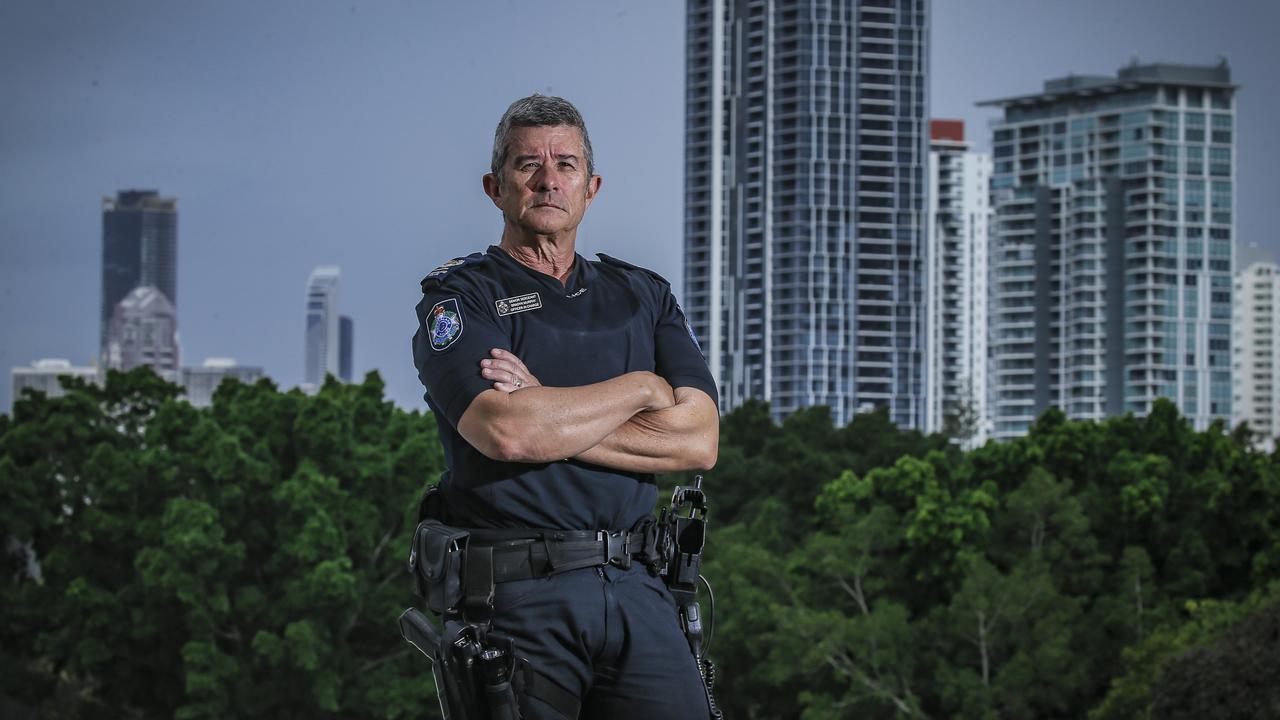
THE EXCUSES
When police pull over people for speeding, there is one excuse that they hear time and time again.
It’s the most common thing that drivers say.
What they don’t realise is that far from winning them any sympathy, it only makes police even more concerned.
“The majority of people we pull over for speeding, it’s a mystery to them,” he says. “They go, ‘oh was I?’ And we go, ‘how could you not know you were speeding?’
“(They will ask) ‘are you sure?’ And I’ll say, ‘I’m pretty sure that’s why I stopped you’. And then they’ll go, ‘isn’t it a 70 zone?’ You know you passed four lots of 60 signs before I stopped you. So what are you looking at in a motor vehicle that you don’t see multiple 60 signs, multiple 80 signs? What are you looking at?
“They’re travelling at a speed they’re not aware of, they’re paying no attention to that speed. Therefore (they’re not paying attention to) their surroundings.
“ ... I would much prefer, if I get you for speeding, that you know what speed you’re doing. If you say ‘I know I was doing 75km/h in a 60 zone because I’m running late for this, running late for that’. It’s still not good. But it’s better than me pulling you over and the fact that you were speeding is total mystery to you.”
Snr Sgt Murphy says there are some other very common excuses – and they don’t wash with him either.
“The biggest one is I need to go to the toilet,” he says. “And then you would say to them, but you passed three service stations. And you’ve gone past the Broadwater Parklands where there’s public toilets.
“Or it’s I need to get home because my husband or my wife’s not well. And you go, have you called an ambulance? And it’s no no no, I’ll take them myself. Well you’re still 10 kilometres from home, why wouldn’t you call an ambulance?
“We have highly trained paramedics that have highly equipped motor vehicles with lights and sirens, that can render assistance as soon as they get there.
“But then a lot of times it’s just a story. It’s trying to get out of that ticket.”
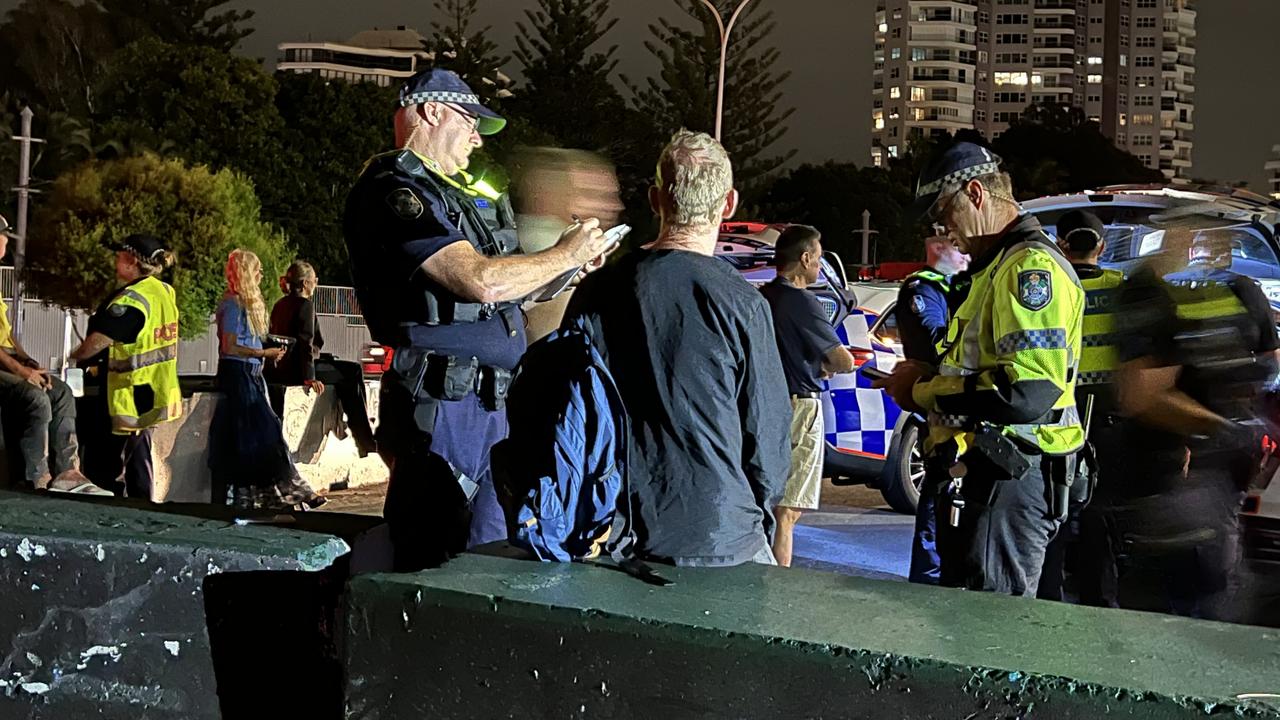
THE MISCONCEPTIONS
The appearance of a police speed camera vehicle or an RBT checkpoint in the suburbs provokes a predictable response: it’s just the police “revenue raising”.
Why, people ask, are officers not busying themselves tackling real crime, rather than going after hardworking mums and dads.
The reality is that they’re doing far more of the former than the latter.
“If you look at it through the history of time, criminals have always used transport, whether it be back on the horses in the Ned Kelly days or now. You know they very rarely catch the bus to do armed robberies, they’re in cars. They’re on our road network on cars and motorbikes,” Snr Sgt Murphy says.
“That RBT site or that random drug testing site, it could be in an area where we’ve had a lot of break and enters.
“Normally we work in with the CIB (Criminal Investigation Branch) and say, where’s your crime hotspot? So we might put RBTs in there. We might even throw speed cameras in that area, because those officers watching those speed cameras, they’re not watching Netflix and Stan and playing cards, they’re actually looking at the back of that camera. So when a car goes through at speed, traffic officers will jump on their iPad and check that vehicle out, and go ‘hang on, that’s a stolen car.’ So it’s tech surveillance and tracking as well.
“I know it’s an unfortunate thing, we do get the mums and dads and the good people with our major operations, but we also get the majority of the people that we’re trying to target, which is the offenders we want off the roads so the mums and dads are safe.”
And as for the common claims about “revenue raising” and making targets?
“I don’t only get paid any more for writing 1000 tickets. The good Queensland government will pay me the same wage whether I write one ticket or 1000 tickets,” he says.
“Our goal as officers is to go out every day and not give a ticket. Because then we know that people are obeying the rules.
“Our main goal as traffic police, as Queensland Police, is to make sure people don’t crash.
“If we go out and we go, listen, we wrote 1000 seatbelt tickets last year, but this year we could only get 500. That’s great. Yeah. Because people are adhering to the rules. That’s what we want.”
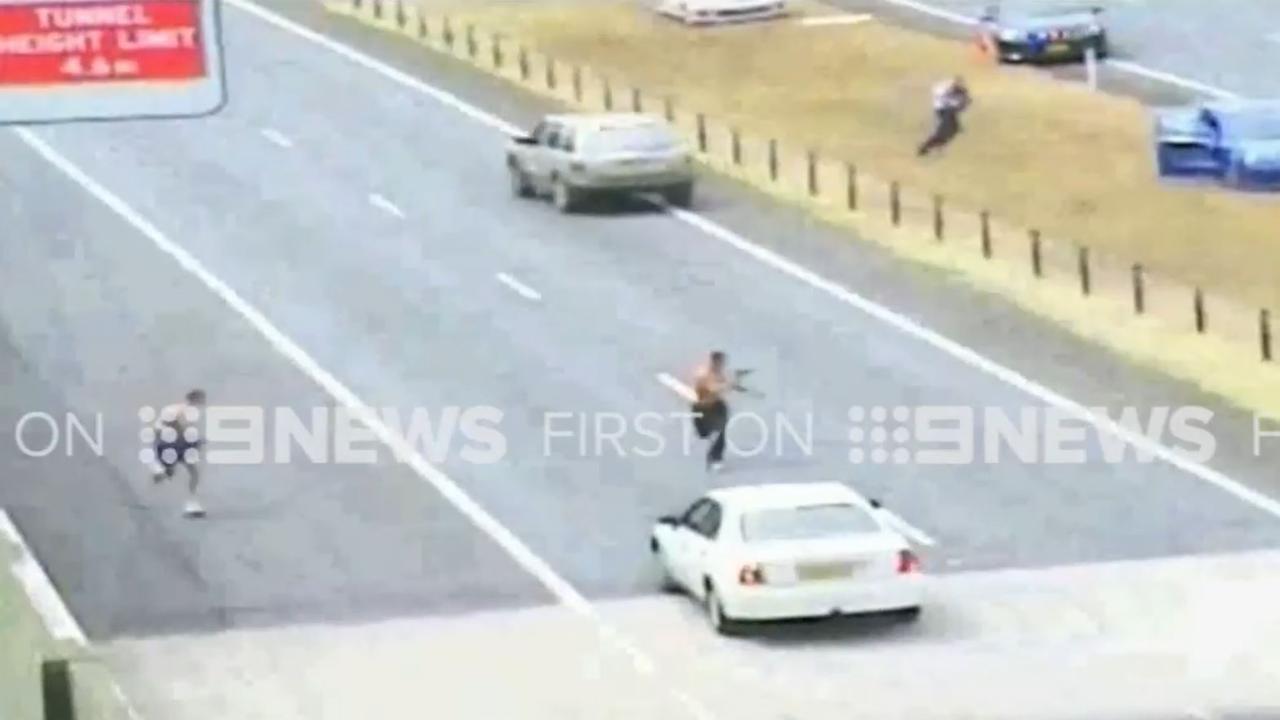
GETTING SHOT AT
No incident better illustrates the fact that for highway patrol officers, ensuring public safety involves infinitely more than issuing speeding fines, than events of February 5, 2015.
Snr Sgt Murphy was being interviewed by media outside a school in Elanora when a fateful call crackled over the police radio.
“There was a couple of offenders in Brisbane who had hijacked a number of cars at gunpoint. They end up for some reason driving down to sunny Gold Coast,” he recalls.
“On that day I was actually doing a school interview with Channel 7 and it came across the air. So I picked the stolen vehicle up at Robina and it was just a shoot to the border. Followed by the police helicopter.
“They were hit with the tyre spikes, just over the border. And there was myself and another New South Wales highway car. Pretty much they pulled up at the median strip and just started shooting. Not a good place to be when you’re in the middle of the highway with nowhere to hide.”
It wasn’t the first time Snr Sgt Murphy had feared for his life. In 2005 he was run over by the driver of a stolen car he was tracking in Southport. Police at the time believed they had done so deliberately.
This time, there was no question of the offenders’ intentions. Video of the dramatic events showed the offenders opening fire at the police officers. Snr Sgt Murphy recalls the sound of a bullet whizzing by his ear.
“They fired a number of shots at me and a number of shots at the NSW police officer,” he says.
“They were random shots but when you look back at the video there were some that were, there were a couple that whizzed past.
“I definitely heard one go past and there’s a part in the footage that’s quite commonly found on YouTube now where you see me ducking to one side and that’s when he put the firearm over his shoulder and fired back and I thought I’d better move. It was lucky I did.”
Thanks to Snr Sgt Murphy and the other officers involved, no members of the public were injured that day. He later received both an Australian Bravery Medal and a Group Bravery Citation for his actions.
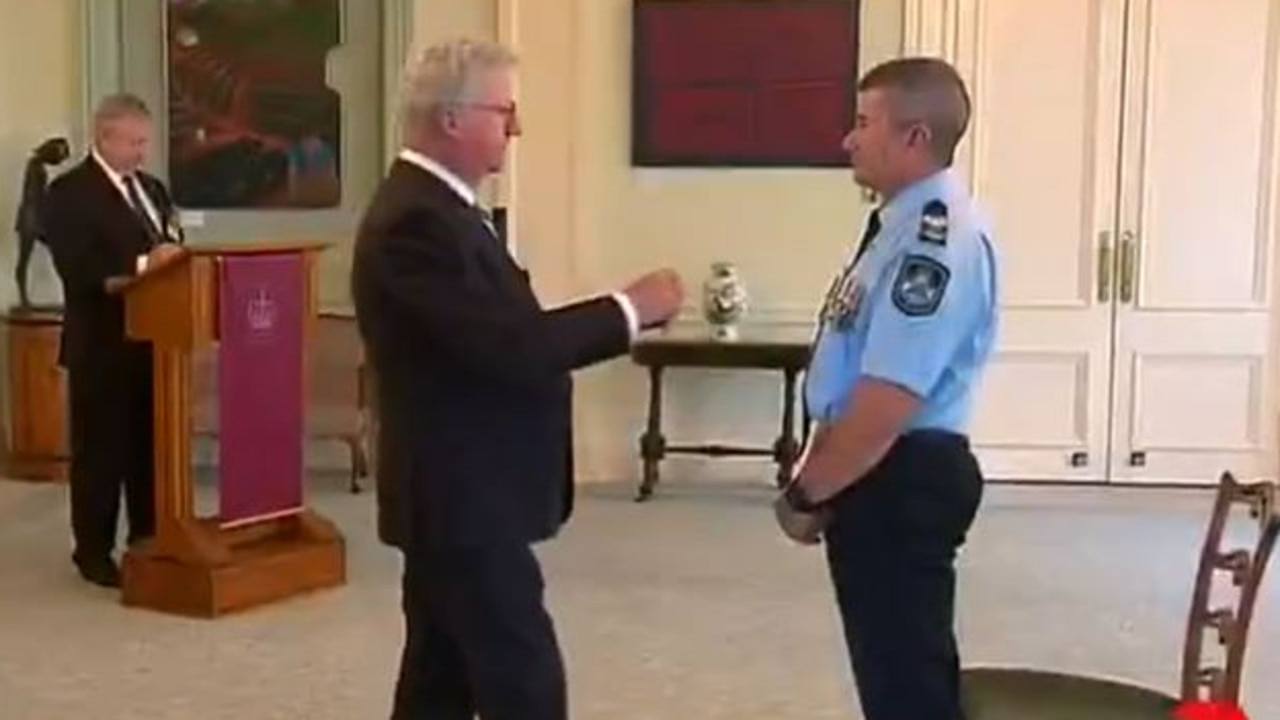
THE TROUBLE WITH MOTORBIKE RIDERS
A key focus for police recently has been the driving behaviour of some motorbike riders, especially on hinterland roads. Again, their operations don’t always go down well.
“People go, you’re just out there picking on us. Motorbike riders are renowned for saying, ‘you know these car drivers, they’re trying to kill us’,” Snr Sgt Murphy says.
“Eighty per cent of motorcycle crashes are single vehicle crashes where the rider loses control. So car drivers have nothing to do with it.
“Unfortunately we read social media pages sometimes. It’s probably the worst thing in the world you can do.
“It’s like, ‘they’re targeting us in the hinterland’. You know, you (motorbike riders) need to think about why we keep targeting you in the hinterland. Because you keep dying up there. Stop dying and we won’t go up there.
“Motorbike riders always have an inflated view of how they ride. They think they’re the best rider in the world. And they don’t ride to the conditions.
“It comes down to ignorance and arrogance. They’re ignorant of their own circumstances, they’re arrogant in the way they think they can ride, and nine out of ten times when it goes wrong because they’ve made a poor choice in terms of speed or braking or whatever, there’s nowhere to go except off the mountain. It’s not a like a track where you’ve got nice big sand pits, or you’ve got the QAS waiting in an ambulance for when you crash in that corner so they can run out with a stretcher.
“You could be there for an hour, two. If nobody knows you’ve gone off the mountain, then guess what, you may die alone. Simple as that. It’s happened many times.”
WHAT THE PUBLIC DON’T KNOW
Public commentary about police road safety operations comes about because they are high visibility. They’re meant to be.
However Snr Sgt Murphy says it’s only a “very small part” of what they do to keep the roads safe.
Most of their work, people have no idea about. Take Operation Shield, for example.
“We have an operation at the moment, Operation Shield. Officers are dedicated to chase all our recidivists, which is your repeat disqualified drivers, drink drivers. And they will work 24 hours a day,” Snr Sgt Murphy says.
“They’re from the Highway Patrol and they’re just dedicated to work through the top 10, top 20, of our Gold Coast drivers that have no regard for the law.
“The crews are detailed to look after people and be their best buddy. So if you’re out disqualified driving, you’re gonna have an adopted cop. He or she’s gonna be knowing when you leave for work, when you pick up kids, that sort of stuff.
“If the offender leaves at least four o’clock in the morning to go to work, then they’ll be there at four o’clock in the morning.
“It’s a matter of time. We will work through that until we take you off the road.”
Police are also targeting the hoons whose antics cause so much concern in the community. Often they think they are one step ahead of police and won’t get caught. They boast about it on social media.
“On social media it’s this whole ‘no face, no case’ idea,” Snr Sgt Murphy says.
“You know, we’re not the smartest people in the world, but we can track people through social media, it’s not that hard.
“It may not be today, it may not be tomorrow, it may not be this year, but we get them eventually. We just got a 17 year old girl from Carrara, she was hit with over nearly three and a half thousand dollars worth of fines. And her car was seized.
“It was hooning, false plates, the whole thing.
“She thought she was very clever by changing the number plates all the time.
“But you know, people report it. It’s our job to investigate. We can do that 24 hours a day, we don’t have second jobs. If I want to, as the Office in Charge, I can allocate – which I do – police to just chase up these offenders.”
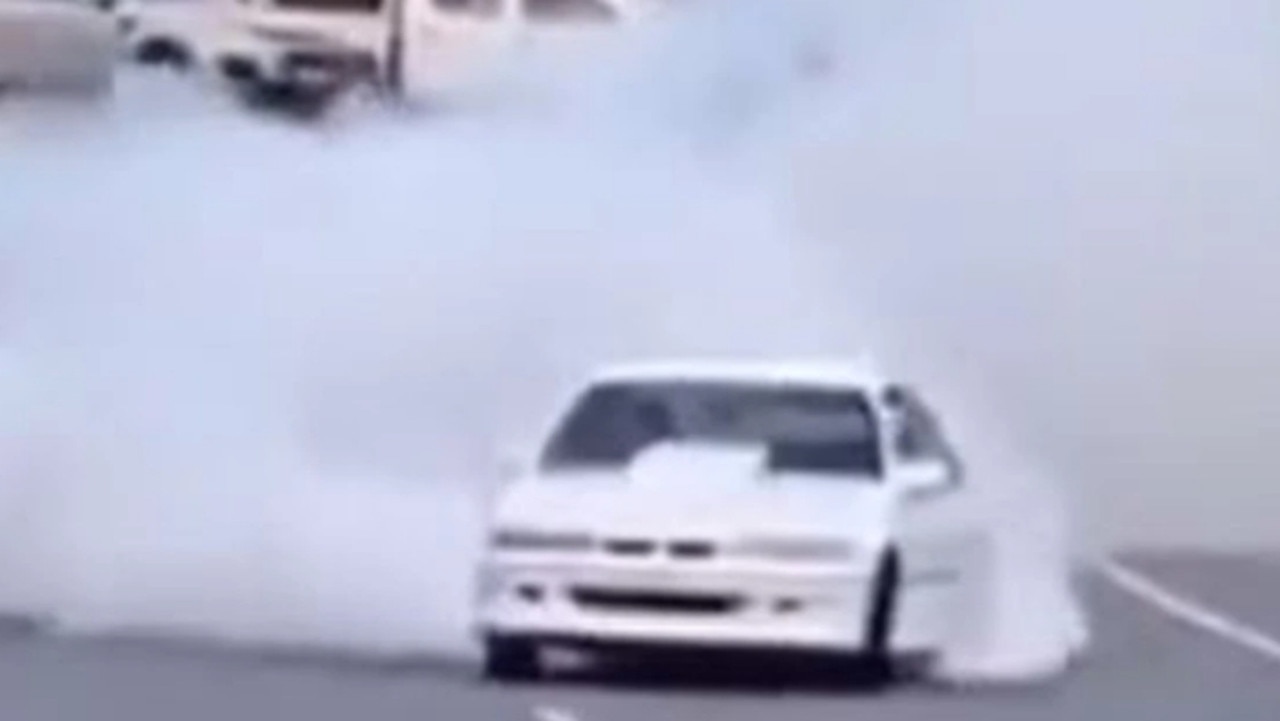
Police are also patrolling major roads in unmarked cars, pulling drivers over for all those offences people sometimes complain are not being monitored.
“I guess it’s one of those statistics that doesn’t get reported on,” Snr Sgt Murphy says. “We are getting the person who’s tailgating, we do stop the people that change lanes without indicating, all that sort of stuff. And then you still get the argument.”
To their amusement, Snr Sgt Murphy says police sometimes find people who have been publicly calling on them to take action end up getting caught doing the wrong thing themselves.
“The funny thing in the job is, when people ring up complaining about people speeding in their street. And you go out and work that street. And guess who you catch? The people that made the complaint.
“And you go, ‘we’re here because somebody made a complaint about speeding in the street’. And they sheepishly go ‘yes, that was me’.
“We just say to them, well as you can see your complaint has been answered. And they’ve got nowhere to go.”
INSTANT KARMA
If that sounds like a touch of karma, it was nothing compared to an incident that occurred on Bermuda St in Broadbeach Waters back in April 2014.
A 23-year-old P-plater who had been speeding and weaving aggressively through traffic tailgated and abused a car doing the 80km/h limit.
The P-plater then stopped at the Cottesloe Dr intersection, hanging back in the traffic to challenge the other driver to pull over.
It was that point that the driver being abused identified himself as Snr Sgt Murphy.
“He (the p plater) was very tough and aggressive at the time,” he says. “You know, I could have just been any member of the public.
“When I got him in the station later he was meek and mild and apologetic. That’s okay after the fact, but you’re endangering people’s lives, just because you want to drive with an aggressive behaviour.
“If you’ve got something going wrong with your day, and you’re fighting with the partner, it doesn’t give you the right to endanger other people.”
Snr Sgt urges anyone else who finds themselves confronted with road rage, as he was that day, to avoid taking the bait.
“Don’t get drawn into somebody else’s driving behaviour,” he says. “That’s where we see road rage.
“One person cuts another person off, and that person is going to retaliate. Let’s let those people drive within their own destiny. Don’t get caught up in their destiny.
“As hard as it is, take the foot off the accelerator, assess the situation and go ‘you know what, that gentleman’s just cut me off or that lady’s just cut me off, I’m just gonna let it go’.
“As simple as that. Because as soon as then you start driving in a certain way, you’re now driving outside your normal behaviour, because you’re angry, you’re aggressive, you’re hostile towards that person because they just took that two metres of bitumen off you.
“You know, there’s plenty more bitumen out there that you can use.
THE MOST TROUBLING THING
Being shot at, abused by a road rager – these are the stories that get the headlines.
But these days what worries Snr Sgt Murphy most is a lot more mundane. Because it’s a lot more common.
“(The biggest problem) at the moment is driver distraction,” he says. “We are all glued to our phones. We don’t do anything these days about picking up a phone, whether it’s ordering food, looking at YouTube videos, or the social media stuff. We feel like we need to be connected the whole time.
“It’s dangerous because we’re not connected in other ways. When you’re driving a motor vehicle or motorcycle, the best connection you need is what’s happening around you. You take your eyes off the road, let’s say it’s two seconds, at even 60 kilometres an hour you’ve travelled nearly 34 meters in two seconds.
“So that’s 34 meters, you haven’t seen anything. And that’s a frightening stat.”
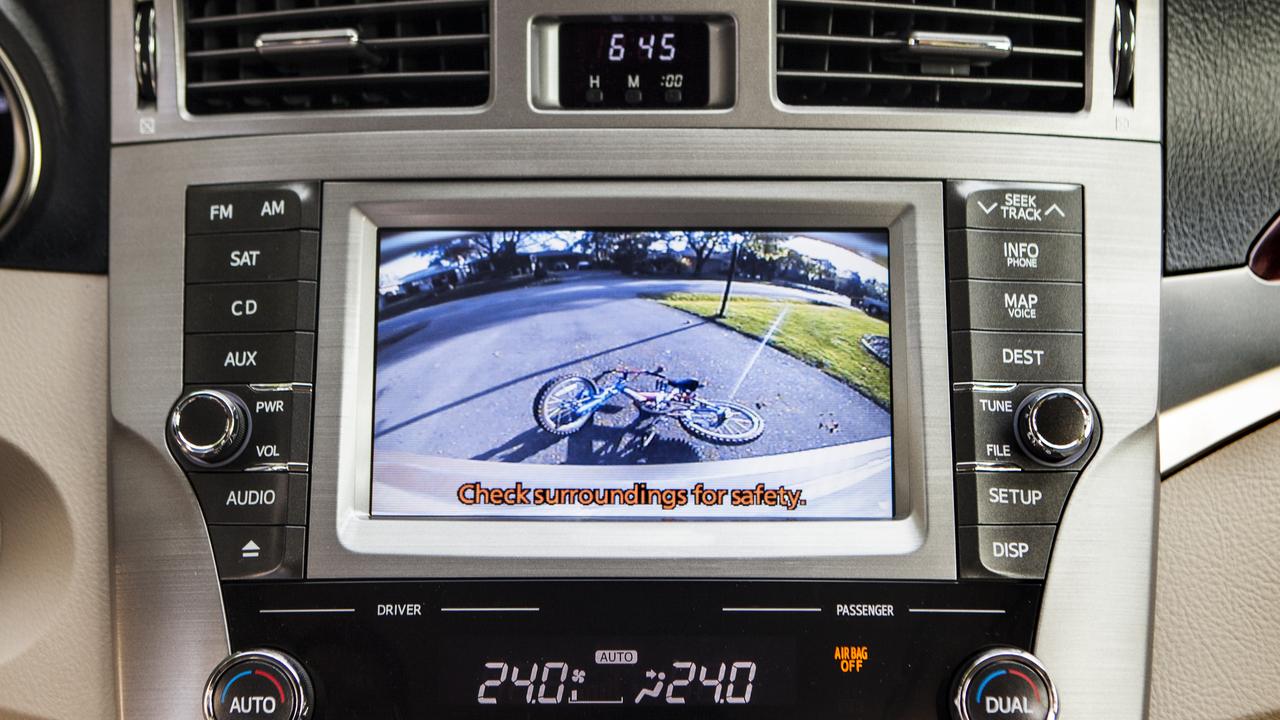
Headlines are also made when technology helps, such as a recent case when two men were rescued after their car crashed off a remote hinterland road thanks to Apple’s crash detection feature.
But like most emergency service personnel, Snr Sgt Murphy has a mixed view of such high-tech advancements.
“It’s a bit of a double edged sword,” he says. “Our safety has come a long way in relation to motor vehicles. But the problem is with safety is people fall into a behaviour of letting the car do the driving for them. We have all these lane changing things and we have reversing cameras. We are taking away the human element of driving. When we do that we take away risk assessment and perception, and all that sort of thing that we need. Your eyes should be the first thing that see everything. And then your warnings can be something you might have missed when you look.
“We still see children getting run over with people reversing. And they’ve got reversing cameras. A reversing camera is a limited field of view. And again it’s that perception and reaction time. A little kid comes from the side, you’re too busy focused on the screen. If you had been looking at the side and the back of your car, you probably would have seen the movement, but you’re focused on a screen.
“We all know kids can move. Kids are like the silent ninjas, one minute they’re there, next minute they’re gone.
“By the time you actually get to the brake it can be too late.”
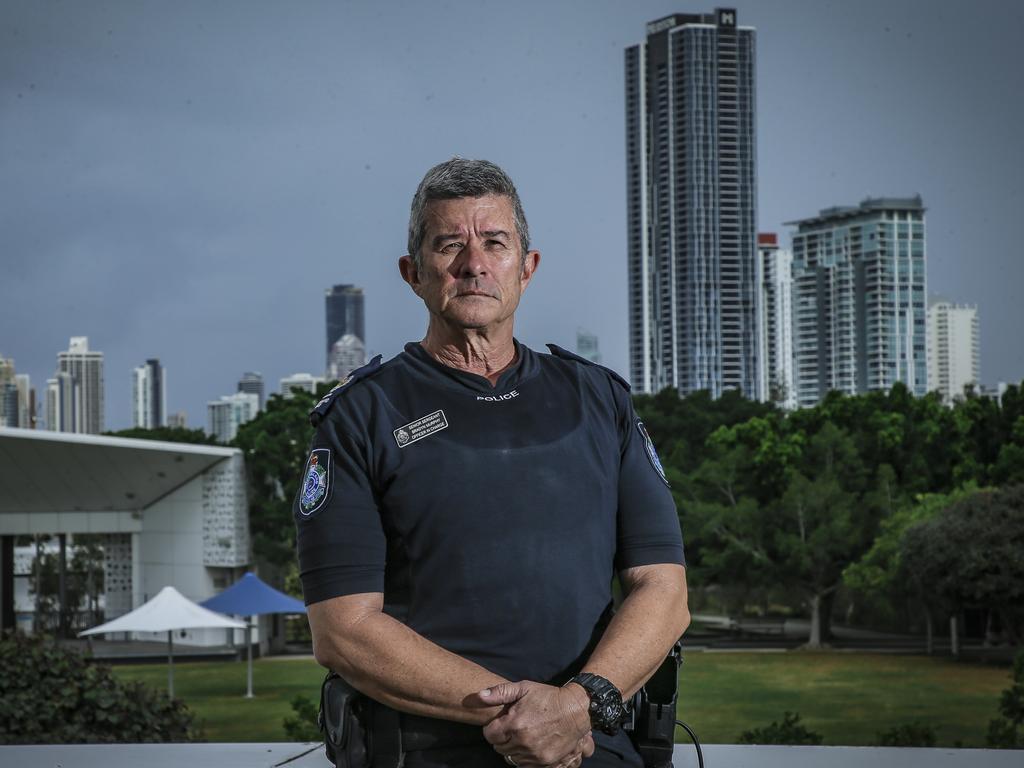
WHY YOU GOT A FINE
Snr Sgt Murphy has no sympathy for anyone who needs their licence for work, but loses it.
“It’s probably a callous thing to say but I won’t lose any sleep because you lose your license and your job for drink driving. Because that’s your choice,” he says.
And he definitely has no sympathy for drink drivers who cause injury or death.
“I won’t suffer your grief. You’ve going to live with that for the rest of your life. I don’t have to.”
As for those complaining that road safety fines are just “revenue raising”, he has no sympathy there either.
He may be the one who hands you the ticket, but as far as he’s concerned, he’s not the one responsible.
“When you look at it, you’ll say I come across as a cranky traffic cop. I put it back and say, ‘Well, you know, when you’re driving down the road, and somebody cuts you off, you know, do you get angry about that? Well imagine a police officer sees that 100 times, and they pull over that driver and that driver gives them attitude, (says) ‘you’re just a revenue raiser’. It’s like, hang on a minute, you’ve just cut off 10 people. You’ve just made those 10 people angry. And now because I’m giving you a stern talking to, you’re upset that I’m giving you a stern talking to and now you’re calling me a revenue raiser?
“I’m a result of your behaviour. I’m not causing your behaviour. I am a result of your poor behaviour.
“We’re not forcing people to look at their phones. We’re not forcing them to run through red lights.
“But we see the end result of the poor decisions that people make.”
More Coverage
Originally published as Top traffic cop reveals the worst driver excuses - and the myth of ‘revenue raising’




